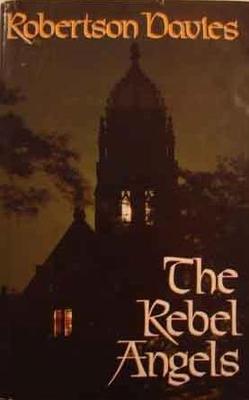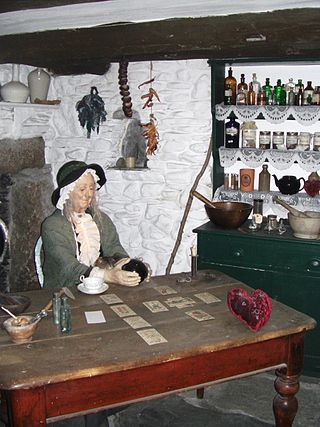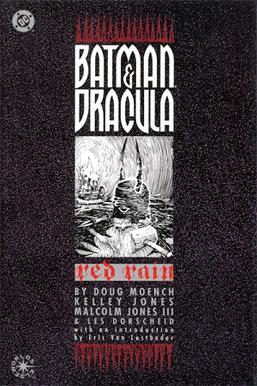
In folklore, a ghost is the soul or spirit of a dead person or non-human animal that is believed to be able to appear to the living. In ghostlore, descriptions of ghosts vary widely, from an invisible presence to translucent or barely visible wispy shapes to realistic, lifelike forms. The deliberate attempt to contact the spirit of a deceased person is known as necromancy, or in spiritism as a séance. Other terms associated with it are apparition, haunt, haint, phantom, poltergeist, shade, specter, spirit, spook, wraith, demon, and ghoul.

William Robertson Davies was a Canadian novelist, playwright, critic, journalist, and professor. He was one of Canada's best known and most popular authors and one of its most distinguished "men of letters", a term Davies gladly accepted for himself. Davies was the founding Master of Massey College, a graduate residential college associated with the University of Toronto.

Papa Legba is a lwa, or loa, in West African Vodun and its diasporic derivatives, who serves as the intermediary between God and humanity. He stands at a spiritual crossroads and gives permission to speak with the spirits of Guineé, and is believed to speak all human languages. In Haiti, he is the great elocutioner. Legba facilitates communication, speech, and understanding. He is commonly associated with dogs. Papa Legba is invoked at the beginning of every ceremony. Papa Legba has his origins in the historic West African kingdom of Dahomey, located within present-day Benin.

The Rebel Angels is Canadian author Robertson Davies's most noted novel, after those that form his Deptford Trilogy.
The Deptford Trilogy is a series of inter-related novels by Canadian novelist Robertson Davies.

In European folklore of the medieval and early modern periods, familiars were believed to be supernatural entities, interdimensional beings, or spiritual guardians that would protect or assist witches and cunning folk in their practice of magic, divination, and spiritual insight. According to records of the time, those alleging to have had contact with familiar spirits reported that they could manifest as numerous forms, usually as an animal, but sometimes as a human or humanoid figure, and were described as "clearly defined, three-dimensional... forms, vivid with colour and animated with movement and sound", as opposed to descriptions of ghosts with their "smoky, undefined form[s]".

World of Wonders is the third novel in Robertson Davies's Deptford Trilogy.

The cunning folk were professional or semi-professional practitioners of magic in Europe from the medieval period through the early 20th century. In Britain they were known by a variety of names in different regions of the country, including wise men and wise women, pellars, wizards, dyn hysbys, and sometimes white witches.

The Cunning Man, published by McClelland and Stewart in 1994, is the last novel written by Canadian novelist Robertson Davies.

For Your Eye Alone, published by McClelland and Stewart in 2000, is a collection of letters by Canadian novelist Robertson Davies.

Odd Thomas is a thriller novel by American writer Dean Koontz, published in 2003. The novel derives its title from the protagonist, a twenty-year-old short-order cook named Odd Thomas. The book, which was well received and lauded by critics, went on to become a New York Times Bestseller. Following the success of the novel, six sequels, Forever Odd (2005), Brother Odd (2006), Odd Hours (2008), Odd Apocalypse (2012), and Deeply Odd (2013), were also written by Koontz. The final novel in the series Saint Odd (2015) was released on Jan 13, 2015. Three graphic-novel prequels, In Odd We Trust, Odd Is On Our Side and House of Odd have also been released. In the postscript to the graphic novel, Koontz states that "God willing, there will be six Odd Thomas novels." A Special Odd Thomas Adventure, Odd Interlude, was released on December 26, 2012, and another Odd Thomas: You Are Destined to Be Together Forever on December 9, 2014.
Toronto Trilogy may refer to novel series by:
Gwyllion or gwyllon is a Welsh word with a wide range of possible meanings including "ghosts, spirits" and "night-wanderers up to no good, outlaws of the wild." Gwyllion is only one of a number of words with these or similar meanings in Welsh. It is a comparatively recent word coined inadvertently in the seventeenth century by the Welsh lexicographer Dr John Davies of Mallwyd.

The Batman & Dracula trilogy consists of three American graphic novels—Batman & Dracula: Red Rain (1991), Bloodstorm (1994), and Crimson Mist (1998)—written by Doug Moench and penciled by Kelley Jones. The books were published by DC Comics as a part of its Elseworlds line of comics. Moench created the concept for the first installment and convinced Jones, of whom he was a fan, to join the project. Red Rain's eventual popularity resulted in DC commissioning sequels.

Scoop is a 2006 romantic crime comedy film written and directed by Woody Allen and starring Hugh Jackman, Scarlett Johansson, Ian McShane and Allen himself. It was released in the United States by Focus Features on July 28, 2006. The film follows an American journalist and a magician being guided by the spirit of a reporter to investigate a British aristocrat who might be a serial killer. Scoop received mixed reviews from critics regarding its humor, but was a box-office success, grossing $39.2 million against a $4 million budget.

A Chinese Ghost Story: The Tsui Hark Animation is a 1997 Hong Kong animated film. It was written and produced by Tsui Hark and his production company Film Workshop. The animation was produced by Japanese animation studio Triangle Staff. It is also referred to as "Xiao Qian", "Little Pretty", "Chinese Ghost Story Xiao Qian".
Douglas Maitland Gibson,C.M. is a Canadian editor, publisher and writer. Best known as the former president and publisher of McClelland and Stewart, he was particularly noted for his professional relationships with many of Canada's most prominent and famous writers.

Chinese folklore features a rich variety of ghosts, monsters, and other supernatural creatures. According to traditional beliefs a ghost is the spirit form of a person who has died. Ghosts are typically malevolent and will cause harm to the living if provoked. Many Chinese folk beliefs about ghosts have been adopted into the mythologies and folklore of neighboring East Asian cultures, notably Japan, Korea, and Vietnam. Beliefs about ghosts are closely associated with Chinese ancestor worship, where much have been incorporated into Buddhism and in turn influenced and created uniquely Chinese Buddhist beliefs about the supernatural.

Cunning folk, also known as folk healers or wise folk, were practitioners of folk medicine, helpful folk magic and divination in Europe from the Middle Ages until the 20th century. Their practices were known as the cunning craft. Their services also included thwarting witchcraft. Although some cunning folk were denounced as witches themselves, they made up a minority of those accused, and the common people generally made a distinction between the two. The name 'cunning folk' originally referred to folk-healers and magic-workers in Britain, but the name is now applied as an umbrella term for similar people in other parts of Europe.
James Murrell, also known as Cunning Murrell, was an English cunning man, or professional folk magician, who spent most of his life in the town of Hadleigh in the eastern English county of Essex. In this capacity, he reportedly employed magical means to aid in healing both humans and animals, exorcising malevolent spirits, countering witches, and restoring lost or stolen property to its owner.














